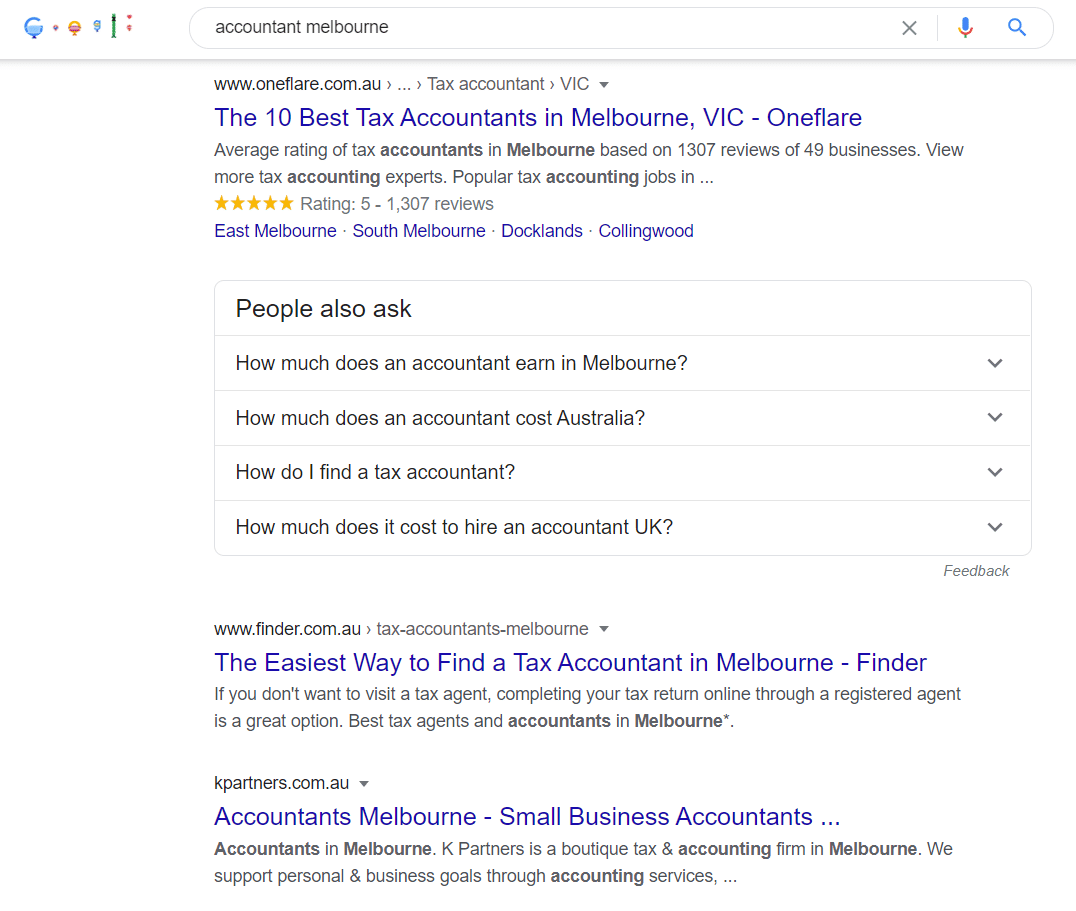Website Audit Services
☑️ Make the most of your website
☑️ Find the areas that need improving
☑️ 100% human & detailed analysis
Key Reasons Businesses Need a Website Audit
Your website should be an asset to your business that is consitently generating new revenue.
If this isn’t the case, you need to audit your website’s performance to determine what is causing your issues.
Key reasons to get a website audit.
- Drop in revenue from website
- Low level of traffic from organic Google search
- Poor rankings in Google search for keywords other than your branded terms (for example, “Digital Treasury”)
- Google Analytics shows your bounce rate is high or your time on site is low or your pages per visit is close to 1.0
- Poor conversion rates of traffic to purchase/leads
- Traffic from Google drops after a major algorithm change.
Choose a Website Audit
Website Design Audit
Our designers look at your website page by page to check for design issues.
UX Audit
UX design is a design process whose sole objective is to design an experience that offers great experiences to its users. We audit your website from a UX perspective.
Technical SEO Audit
We review 100s of techincal aspects of your website to ensure different elements need to rank are present.
Competitor Analysis
We look in detail at your key SEO competitors and reverse engineer what they are doing well from a SEO perspective and overall digital marketing point of view.
Content Audit
We audit the content on your website from a SEO perspective to understand what you have to work with for a new SEO campaign. We review your content length, spelling, grammar, keyword cannobilisation & website architecture.

What is a website audit service?
A website audit service is a comprehensive evaluation of your website’s health, performance, and user experience. It not only identifies issues but also unearths opportunities for optimisation and improvement to gain more traffic and generate leads for your business.
A website audit doesn’t just look at the surface; they delve into the intricate details, ensuring every component functions at its peak. When you harness the power of a website audit, you’re not just seeking errors; you’re strategising for success. It’s about understanding the nuances of your website, making informed decisions from examples of best practice, and optimising for an unparalleled digital journey.
Every click, every page, every element – all scrutinised for excellence. A website audit has the power to identify issues with yiour website and give you the steps needed to elevate you online game!
How can a website audit improve a site’s performance and user experience?
A website audit meticulously identifies bottlenecks and inefficiencies that hinder a site’s loading speed, ensuring faster page loads and smoother navigation.
By highlighting design inconsistencies and usability issues, your website audit can inform required enhancements leading to a more intuitive and user-friendly interface.
Through the detection of broken links or 404 errors, audits ensure that users don’t encounter problems, enhancing their overall journey.
By observing user behavior and interaction patterns, website audits can suggest content optimisations to better resonate with the target audience.
Mobile responsiveness checks within the website audit ensure that users have a seamless experience across devices, from desktops to smartphones.
Lastly, by pinpointing SEO shortcomings, audits pave the way for better search engine visibility, driving more organic traffic to help users find your business and what they’re looking for!
How often should a website undergo an audit?
We recommend that businesses complete an audit of their website every 2 years at a minimum. For businesses that rely on their website for lead generation and marketing purposes, we suggest website’s performance is monitor daily to ensure no wastage of marketing expenses.
How is a website audit different from regular website maintenance?
A website audit is a comprehensive evaluation of a site’s overall health, performance, and user experience, aiming to identify areas of improvement and optimisation.
In contrast, regular website maintenance involves routine updates, fixes, and checks to ensure the site functions correctly and stays updated.
While an audit provides a deep dive into potential issues and opportunities, maintenance focuses on ongoing tasks like updating plugins, ensuring security patches are applied, and backing up data. An audit often serves as a precursor to major site overhauls or redesigns, whereas maintenance is a continuous effort to keep a site running smoothly.
Website audits are typically periodic and strategic, whereas maintenance is a consistent and operational activity typically completed monthly, weekly or even daily.
In summary, a website audit service diagnoses and strategises, maintenance monitors, acts and preserves the website’s performance.
What tools are used in a website audit?
Digital Treasury uses a number of tools to help with analysis of your website during an audit including:
- Ahrefs
- Screaming Frog
- Our brains 😉
How can a website audit help in improving search engine rankings?
A website audit identifies SEO gaps, such as shallow content, missing meta descriptions, alt tags, or improper use of header tags, allowing for targeted optimisations that all help your website gain visibility within search engines.
By uncovering issues like duplicate content or slow-loading pages, audits enable corrections that can otherwise penalise a site’s ranking.
The audit process also highlights the quality and relevance of content, ensuring it aligns with search intent and keyword strategies, thus boosting organic visibility.
As search engines algorithms continue to shift to an emphasis on user-friendly website, ensuring a website is mobile responsiveness and has good user experience will help rankings improve.
What are the common issues identified during a website audit?
Every website audit is different, but there are definitely common problems that business website’s have including:
- Slow loading pages due to images that have not been compressed prior to uploading;
- The homepage above the fold area does not include a simple description of the product or service that the business sells, making it difficult for the visitor to understand wha they can get;
- Poor mobile design;
- Not ranking for any keywords or generating any traffic in Google outside their company ‘brand name’; and
- Content is too short or not high enough quality.
How long does a typical website audit take, and what factors influence its duration?
Depending on the size of the website, typically our website audit services takes 3-5 weeks to deliver.
Larger sites with numerous pages and complex structures naturally demand more time for a thorough evaluation.
The scope of focus, whether it’s just SEO, user experience, or a more comprehensive audit encompassing all aspects will impact the time taken to complete your website audit, contact Digital Treasury to get a time estimate for your website audit service project.
What is the difference between an automated website audit and a manual website audit?
An automated website audit utilises software tools to scan and evaluate a site’s elements, providing quick insights into issues like broken links, SEO gaps, or page speed. You will often see marketing agencies offering ‘free website audits’ as a lead generation tool. While these serve their purpose, they often do not offer up valuable insights.
In contrast, a manual website audit involves human experts meticulously reviewing the site, offering nuanced insights, and understanding context that machines might overlook.
While automated audits are efficient and can cover broad technical aspects, they might miss out on subjective areas like design aesthetics or content relevance.
Manual audits, on the other hand, provide a deeper, more holistic understanding of the website, often combining the strengths of human judgment with the efficiency gains of using software tools.
How can businesses prepare for a website audit?
To make sure there are no delays to your website audit, businesses should first grant us full access to essential platforms like:
- Google Analytics;
- Google Search Console; and
- any other relevant data requested.
By providing this access, auditors can gain a comprehensive view of the site’s performance, traffic patterns, and user behaviors without any delays in starting the website audit service.
Additionally, businesses should compile a list of any past website design and SEO efforts, changes, or updates made to the site as this can offer valuable context for the website audit.
Lastly, clear communication about business goals and objectives, target audience, and any known issues can help website auditors customise their approach, ensuring the audit’s findings are both relevant and actionable for the business!
What should businesses expect in terms of recommendations after the audit is completed?
After a website audit, businesses should anticipate detailed recommendations that address identified issues, ranging from technical problems to content optimisation strategies.
Businesses can expect insights into user experience improvements, such as design tweaks, navigation enhancements, and mobile responsiveness adjustments.
Want to talk SEO?
Organise a free consultation where we can look at your exact SEO rankings today & discuss the SEO campaign it will take to improve your ranking in Google. Live over the phone. No rubbish automated reports 🙂 Speak with a real SEO specialist.

